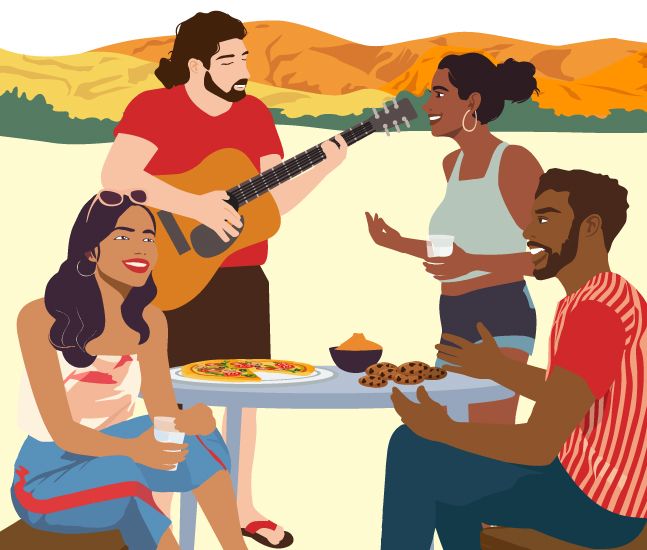Discovering our place within our community and understanding our identity is an ongoing journey influenced by lots of different things. As we navigate life, our sense of self may evolve. A strong connection to our community and a positive sense of identity can be helpful in healing, building resilience and enhancing overall wellbeing.
“Knowing your identity can be about your wairua, but it can also be intellectual and emotional. Sometimes, you feel like you are not being heard. People want to be seen and heard so they can feel good within themselves.” – Matua Tau Huirama
Our identity shapes our thoughts, actions, values and interactions. It's a reflection of how we see ourselves and plays an important role in our mental wellbeing.
Our identity shapes our thoughts, actions, values and interactions. It's a reflection of how we see ourselves and plays an important role in our mental wellbeing. Identity is more than just your ancestry – it is your age, gender identity, sexuality, musical tastes, friendship groups, academic and professional background and so many other things.
A strong sense of identity can give us a sense of purpose and belonging, both individually and in groups. A strong sense of identity can bring heightened self-awareness, self-worth, confidence and resilience. If you’re feeling disconnected or confused about where you belong, there are people out there who get where you're coming from and can offer you support and understanding.







